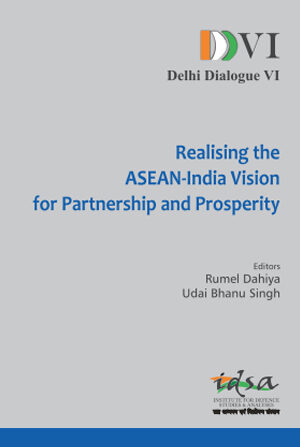India’s ‘Pacific Islands’ Outreach: Understanding Regional Narratives, Geopolitics & Opportunities
The narrative of ‘the return of geopolitics’ to the Pacific Island Countries (PICs) is gaining traction in the larger discourse of the Indo-Pacific, primarily driven by the anxiety over People’s Republic of China’s (PRC’s) expanding engagement in the region. The exacerbation of international tensions, amplified by the Sino-US rivalry, comes even as the Islands navigate intra-regional frictions, challenges of economic development, illegal fishing, climate change and issues related to self-determination and decolonisation. India’s renewed outreach to the PICs under PM Modi’s leadership has found wide appeal, as was visible during his visits to the Pacific Islands and his interaction with leaders via the Forum for India-Pacific Islands Cooperation (FIPIC). Given this context, this monograph will attempt to briefly introduce the relevance of this contested geography to regional and extra-regional players. It will unpack the internal dynamics of regional tensions and examine the agency of PICs. It will expand on how China’s actions are redefining geopolitics in the region and discuss these contested narratives. Within this backdrop, it will also explore how Indian engagement has been perceived in the region and conclude with prescriptive options of steps India could take, including with regional partners, to anchor meaningful presence in the PICs region.
Evolving Security Architectures in Southeast Asia: A Study of Regional Security Multilateralism
The central theme of this monograph is to analyse the emerging security architecture in Southeast Asia. The evolving internal and external developments which confronts Southeast Asian countries has led to the emergence of a complex regional security environment. The ongoing United States-China rivalry in which Southeast Asia finds itself at the centre, is a key factor in shaping the regional security outlook. The study examines the role of ASEAN in shaping the security architecture centered on its norms and upholding multilateralism. However, the ineffectiveness of ASEAN as an informal security arrangement raises concern over the future of security multilateralism. Further, at a time of weakening multilateralism, along with the emergence of new and renewed security alignments being witnessed in the Indo-Pacific; the ASEAN's centrality comes under increasing pressure. Therefore, an examination into the role of major powers and the new bilateral and mini-lateral security arrangements, provides the future roadmap for security multilateralism in Southeast Asia.










